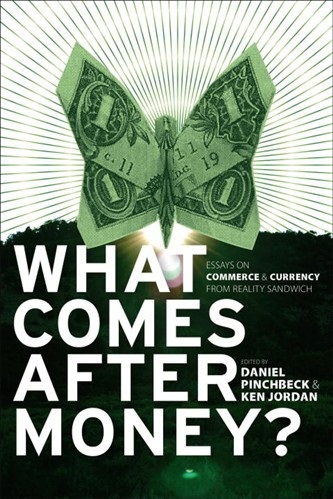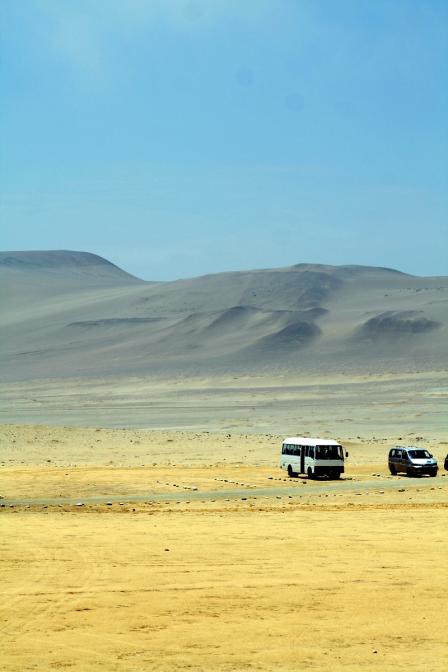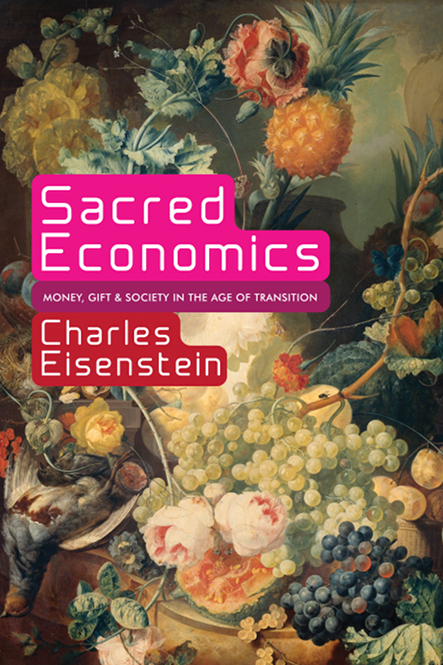Making Cities Smarter Than Their Bankers

The banking
system encircles and ensnares people, buildings and environments,
defining cities, credit-rating some higher, no matter their quality of
life, infrastructure buffers or exposure. This article explores technologies for smart cities to use the system
to better advantage, through more coherent measures, innovation policies
and incentives for livability.
Funding My Existence

The most creative visionaries often cannot function adequately in modern
society. The Internet has allowed for non-traditional funding platforms, but the most popular ones fund creative projects, not a creative
life. It is time to
enable visionaries by funding their existence, allowing them to worry
about more pressing matters — like changing the world.
Sacred Economics: Chapter 13, Steady-State and Degrowth Economics (Pt. 14)

I have long been impatient with “sustainability,” as if that were an end
in itself. Isn’t it more important to think about what we want to
sustain, and therefore what we want to create?
Post-Money Giveaway

[Reality Booty] RS is giving away free copies of What Comes After Money for the 3 craziest, wackiest, most clever slogans for the Occupy Wall Street campaign that are left in the comments section, or on our Facebook fan page. The RS crew will pick the winners on October 11th.
Sacred Economics: Chapter 12, Negative-Interest Economics (Pt. 13)

The deep link between money and being is good news because human
identity today is undergoing a profound metamorphosis. What kind of
money will be consistent with the new self, the connected self, and a
world in which we increasingly realize the truth of interconnectedness:
that more for you is more for me?
Yoga and Money

We are on the brink of an
apocalypse that some have prophesied will result in a radical shift in how we
relate to time. The yogic practice of greedlessness can shift our relation to time; when we let go of the
habit of accumulating money and material things, we might have a chance to drop
into the present, where our true multidimensional self
exists, and where our
destiny will be revealed.
Sacred Economics: Chapter 5, “The Corpse of the Commons” (Pt. 6)

When
I ask people what is missing most from their lives, the most common answer is
"community." But how can we build community when its building blocks- — the things
we do for each other — have all been converted into money?
Sacred Economics: Chapter 2, “The Illusion of Scarcity” (Pt. 3)

Why should money be the root of all evil? After all, the purpose of money is, at its most basic, simply to facilitate exchange — in other words, to connect human gifts with human needs. What power, what monstrous perversion, has turned money into the opposite: an agent of scarcity?
– The third installment from Sacred Economics: Money, Gift, and Society in the Age of Transition.
Homepage for Sacred Economics: Money, Gift, and Society in the Age of Transition

Welcome to the home page for the on-line version of Sacred Economics. This is
a book that explores, on a social, political, and personal level, the
transition in money and economy that is upon us today. With the agreement of
the publisher, EVOLVER EDITIONS/North Atlantic Books, I am making the full text
available on line one chapter at a time over a period of about six months. By
the end of 2011, the complete book will be on this website. The print version will be available July 12, 2011.
A Farewell to Advertising

Digital advertisers track your online
behavior, creating a detailed personal profile that is owned by the
company that constructs it, which can do whatever it pleases with that
information, including sell it. Emerging
technologies could support a different model that respects our privacy,
acknowledges our intelligence, and responds to actual needs, not manufactured
desires.










